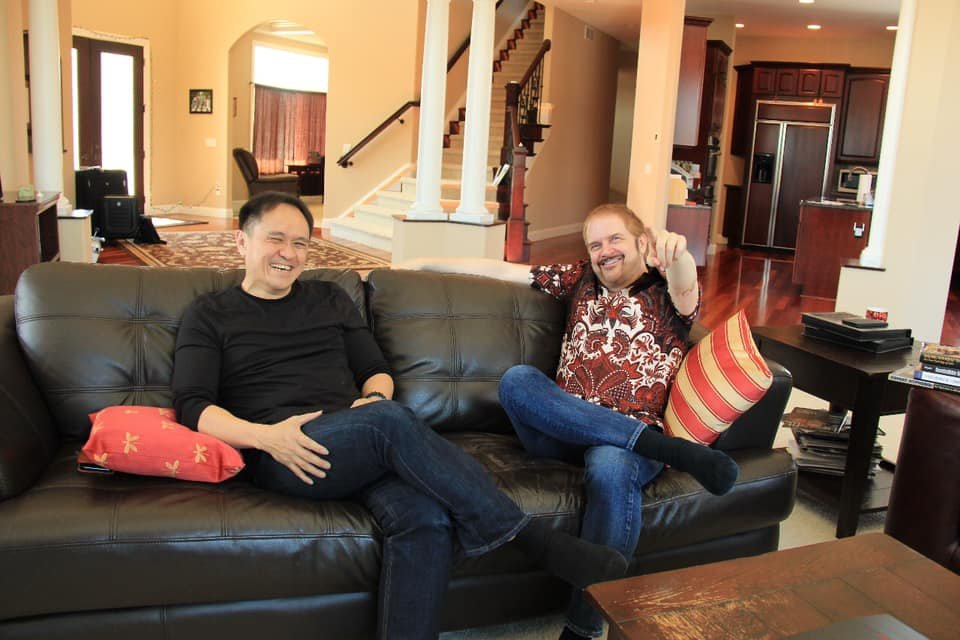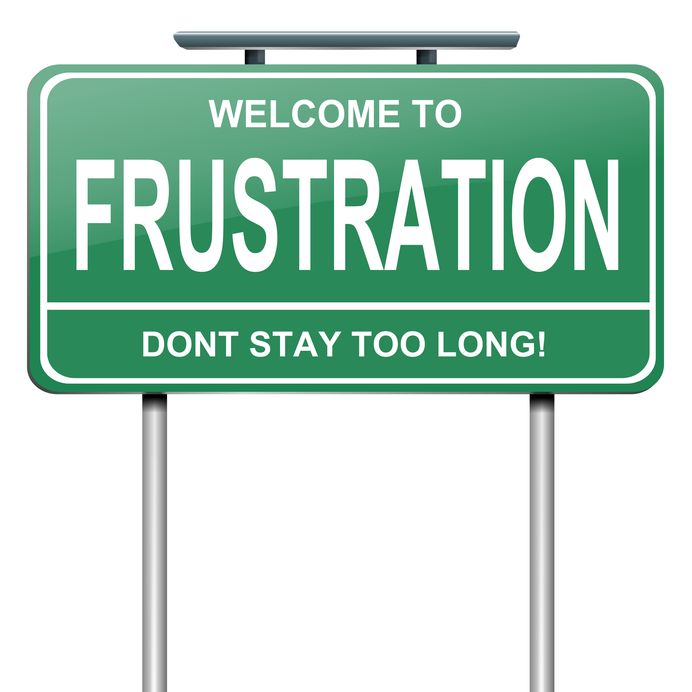
This is where it begins.
I developed The Time Plan System and published it in The 168 Hour Week: Living Life YOUR WAY 24/7
Not the 168 Hour WORK week. But the 168 hour week.
Big difference.
In the book I leave nothing to the imagination.

Everything else I do revolves around working with people who are going to achieve something special in their niche or are looking to find that place where they can be amazing.
No plan, no chance.
No matter who you are, you MUST begin your plan with PLEASURE.
EVERYONE needs a REASON to continue.

There are a couple of ways to consider pleasure priorities.
The first is that which you enjoy by your self or with someone special.
The other is those pleasures you enjoy with groups.
You’ve got 14 hours to put pleasure up on your calendar. Block it out NOW on a napkin. I beg you not to type it into your phone or computer. Just play with me and enjoy the process.
Next you need 56 hours of sleep each week. This is not negotiable.
If you don’t sleep you gain weight, look terrible and are not as fast at getting everything done that must get done so you can then do those things that are top priority plans.
Next if you have kids, you need time with those kids.
There is truth to “quality of time” and there is truth to “quantity time.”
But there is something missing in both of those.

I SEE DAD AND HE’S HERE AND HE MAKES IT SAFE FOR US, fun for us, feeling loved because I can go sit by him while he works pretty much anytime he’s not an event or on a Zoom Event.
If you ask my son Mark, I believe he will tell you that his favorite time as a first grader was coming home from school and playing video games with Dad.
It’s on the calendar.
As time went on we graduated to talking science, physics, the Bible, love, you name it.
My daughter had different ideas of time. She wanted to go with Dad to Vegas and bring her friends along. And starting at a very young age, I’m guessing 10 or 12, we did just that.
BOTH sets of needs were different for my kids and we just kept doing what they needed.
And as I saw the zest they had for what we did, it gave me reasons, lots of reasons to be valuable to my network, write great books, produce great programs and develop friends for life that now visit the Hogan house from all over the world.
We’ve had visitors from the The White House, as in D.C..
We’ve had celebrity visitors.
We’ve had Inner Circle Members who come stay with us, most recently we hosted a delegation from Indonesia. 12 superstars. I had a blast and so did they.
We have a Scott Bell bedroom in the house. Scott comes, he just goes to his room. He’s always welcome.
We now have a Hing Nikolay room. It’s open to Hing anytime he’s in the U.S. This is Hing and myself:

I want you to start making people and plans priorities in your life.
There are the priorities that you think about, and, there are the priorities that you don’t know about.
How could you not know a priority in your own life?
A lot of people literally focus all of their thoughts on the present. They have their homes foreclosed on, watch their credit ratings tumble and fail to plan to take care of those they love the most.
The most important priorities are often those that are not thought of.
How do you figure out what these priorities are today?
1) You ask yourself what’s most important in your life?
Your family, your job, your hobbies, your health, your home, etc.
2) Now project yourself out just one year.
How are those things going to be taken care of if any of the others are screwed up?
So, if your health goes to heck and you end up in the hospital a chunk of next year, how will you pay for it and how will you take care of your family and future from that point going forward?
If your job situation turns sour. (You were a mortgage banker that didn’t make it, for example.)
3) In one year, what actions will you need to be taking to take care of your family, and your future from that point forward?
Nothing wrong with partying today if you have everything paid for, for the next couple of years. If not, it’s time to get a plan for 2008 as well as for tomorrow.
People who party today without a navigable plan for tomorrow end up with few good life choices as each year passes.
When you don’t set priorities in your life, you end up spending a lot of time on things that don’t really matter and neglecting the things that do.
Think of it this way….

7-Step Plan for a Realistic Schedule
Question: If you could create any kind of daily schedule for your life, what would it look like?
1) Think about how much time each day you’d like to spend working, relaxing, playing, and interacting with others.
2) Now, in order to be THERE in 2023, what do you have to do TOMORROW?
You might be tempted to get cute with this and say “I’d like to work only 2 hours a day and play the rest of the time,” but let’s try to make it somewhat more realistic. That’s not to say that working only 2 hours a day is an impossible goal, after all there is the 4 hour work week book…but it’s probably not very realistic for where you are in your life right NOW. So try to keep your answers more in line with who you are and what you do in your life today and how these days need to be planned for your life to be free.
Most likely you’d designate 6 to 8 hours a day for work, depending on what you do and whether you work full-time or part- time, whether you are a business owner or employee, and so on. Maybe another 7 to 8 hours for sleep each night, and an hour to yourself to read and relax, and maybe an hour for exercise and meditation, etc.
3) Keep going until you’ve included time for everything that really matters, including time for your family and friends, volunteer activities, creative pursuits, errands and house/yard work, and even television and computer time.
4) Add up the time you’d spend on all these activities daily, and subtract the sum from 24. Do you have any time left over?
Usually one of two things will happen…
- Either you’ll seem to have too much time left over and wonder what you left out.
- Or, you’ll find that you don’t have enough time because you’re trying to squeeze in too many activities, or allow too much time for certain activities.
5) Keep tweaking your imaginary schedule until you come up with something workable.
6) Now, compare this schedule to your REAL schedule. Where are the discrepancies?
What is your real schedule?
7) Each day before you go to bed, note in your journal how you spent each hour of the day, what you did, what you accomplished, how it helped you, your family, your future, your career, etc.
You might be surprised with what you discover.
Common Conflicts

Trying to create a workable schedule can be challenging for sure! No matter how much you might want to squeeze into a day, compromises may be necessary.
Let’s look at some common schedule conflicts:
Work: Even though you might like to work only 6 or 8 hours a day, the company you work for might have a mandatory overtime policy, or you might have a long commute that eats into the time you would spend on other activities.
Of course, you can decide to get a new job that doesn’t require so many hours or offers a shorter commute, but there may be consequences such as less pay, reduced benefits or decreased opportunity for advancement…and that might be just fine.
Another option is to adjust the time you spend on other activities to make up for the extra time spent working or commuting. You might decide to hire a cleaning or errand service so you can take those tasks off your to-do list, or you might reduce the amount of time you spend volunteering.
Family: Quality time with your family is important, but it’s very easy to shirk when you’ve got a lot going on in other areas of your life. Instead of promising that you’ll spend more time with your family on the weekends when you’re not so busy, how about trying smaller segments of quality time more often?
A lot of parents live in an illusion that their children are begging to spend all of their time with the parents.
They aren’t.
Depending on age and circumstance, most kids want to spend some time with their parents each day. Once kids become teens….
SOME time as far as duration does matter. But be real. It’s not how much time you spend with your family that creates a solid bond, but what you DO with the time you spend together.
Quality time with those you love doesn’t have to take a lot of time, just provide an opportunity to connect on a regular basis.
Personal time: Unfortunately, this is one thing that usually gets shoved aside when you’re busy. You start believing that everyone and everything else is more important than your own self-care, so you keep putting off the things you know would make you a happier and more balanced person.
Everyone has to sacrifice x for y in life. In part, that’s what LIFE IS ABOUT. BUT don’t allow yourself to subjugate all the time.
Time to yourself is absolutely VITAL to your health and well- being. It’s so important, in fact, that it will often determine your quality of life in ALL other areas!
When you ignore your own self-care and focus all of your attention on others and their needs, your energy and focus will suffer greatly.
You might not notice it right away, but you’ll eventually find yourself feeling drained, disconnected, scattered and frustrated. If this goes on long enough, the feelings will intensify and begin to affect everything from your job performance to your relationships to your financial circumstances.
What other conflicts came up when you were creating your schedule?
Make sure you really do know what they are. You will either be in control of your life or randomness and chaos will control you.
Unexpected Delays
As much as we’d like to believe that we can set a rigid schedule and stick to it like glue, the reality of our lives is much different.
Things will go wrong.
You will experience unexpected delays that throw off your entire routine. Events will not always comply with our wishes. That’s just the way it is.
The airlines, hotels and rental car companies do and will lose your reservations too. Venues will change without you knowing it, your kids will be sick, you will have a 10 hour fight with your partner, etc. etc.
Your schedule is a gameplan. Just like in football. It has to require flexibility.
One good way to minimize time conflicts is by being sure to allow adequate time for anything you plan to do. You might hope that a trip to the grocery store will only take an hour, but is that what normally happens? You might insist that your commute should take no more than 40 minutes, but what if you encounter road construction or a traffic jam?
Get into the habit of planning ahead for the unexpected and allowing a little extra time for everything. If you think something will take 30 minutes, allow 45 minutes, or even an hour. If you do this with all of your activities, you’ll find yourself very often being ahead of schedule.
Making Moment to Moment Decisions

You’re going to have competing commitments almost every week if not every day.
KNOW IT.
PREPARE FOR IT.
SOLVE IT NOW, BEFORE IT HAPPENS.
Even when you plan ahead, you will likely still have to make moment to moment decisions to keep your priorities in order.
At the beginning of your day, you might have a clear view of the things you want to accomplish that day. You may have allowed extra time and prepared for the unexpected, but unless you consciously CHOOSE to stick to your schedule in every moment, you will get stuck and get sidetracked.
Example…
Your day is going along great. You’re ahead of schedule and you just got home from work and are getting ready to prepare dinner. You glance at the clock and see that you’ve still got another 15 minutes before you would normally begin preparing dinner, and suddenly you feel tempted to get online and check your email – even though you originally set aside an hour for computer time after dinner.
Right there, at that moment, you will have to make a decision. Can you trust yourself to stay on the computer for just a few minutes? Or will you lose track of time and throw your schedule off?
What you choose to do in that moment will determine whether the rest of your day continues in a calm and efficient manner, or becomes chaotic and scattered.
You can probably imagine endless moments like this throughout the course of every day where you will be tempted to veer off schedule. Whether you choose to do it or not is up to you.
By the way, there is nothing really wrong with not sticking to your intended schedule….. sometimes. You might have valid reasons for doing so, and you’ll have no trouble adjusting everything else to work out fine.
As you’ll eventually come to realize, sticking to a schedule is really all about taking the time to do the things you know need to be done, while still being flexible enough to handle the things you didn’t plan on.
Rule. Get stuff done today. Today’s stuff doesn’t belong in tomorrow’s pile. If you do, overwhelm is just around the proverbial corner.

The more you practice juggling the events and activities of your life, the more efficient you will become at handling them smoothly and effortlessly.
Of course, your daily activities also include involvement from other people – and that can create another snag if you don’t have firm boundaries in place.
Setting Boundaries
If you haven’t made a conscious decision to set boundaries in your life, you probably feel overwhelmed by all of the demands on your time. You might have a difficult time saying no to requests from other people, or you might volunteer to take on projects you’d rather not do simply because you feel obligated to help.
Helping others is a wonderful thing – until it begins to take over your life.
Taking full control of your schedule will require you to set firm boundaries in your life. This might involve having the confidence to say no when you need to, or summoning the courage to eliminate activities that are beginning to drain too much of your time and energy.
Setting boundaries can be an uncomfortable process if you’ve never done it before, but it does get easier as you go along.
Probably the most common problem that arises is your own anxiety about what others will think of you when you say “no.”
You might worry that they’ll get angry or stop speaking to you. You might feel guilty because you are adding to their burden as you lighten your own, and this can be difficult when the other person is someone you truly care about.
What it comes down to, however, is doing what you know is right for you, even if it creates a bit of unpleasantness at first.

Take a few minutes right now to glance back over the lists you made earlier.
- Do you see a lot of responsibilities that really aren’t yours?
- Do you constantly take on last minute errands or favors for friends and family?
- Do you spend a lot of time babysitting your neighbor’s children without pay?
- Are you the one who always ends up coordinating work activities because no one else volunteers?
- Are you the parent who always ends up taking responsibility for school projects because other parents are “too busy?”
You are sacrificing your life for other people…The overwhelm will catch up with you. Stop it,…now.
When you’ve finished, consider each of those items carefully.
Which of them would you really like to let go of? Which of them is causing the greatest drain on your time and energy?
Now for the big question: Are you willing to let go of them?
Ask yourself what consequences might arise from choosing to let go of these obligations. The answers might not be pleasant, but would they be worth the peace of mind you gain in return?
Your answer to this question will vary depending on the situation. Some things you might choose to keep simply because you don’t feel ready to face the consequences. That’s okay! If you are willing to accept the consequences for hanging onto it for now, go ahead and do so.
BE OK WITH FEELING UNCOMFORTABLE in the moment so you can have a BETTER LIFE FOREVER.
Build up your courage and get ready to make some waves.
Giving Back What Isn’t Yours
When you first begin to set boundaries in your life, you will very likely experience some resistance from others. Especially if you are the type of person that would do anything for anyone regardless of the turmoil it causes in your own life, those people have come to depend on your help.
When you try to give their own responsibilities back to them, they probably won’t be thrilled about it.
They’ll probably react in one of two ways:
- Anger and offense. They might express hurt that you won’t help them any longer, or try to play on your sympathies by telling you just how stressed out THEY are, and how you are now adding to that stress. They might express anger at you for “not caring” about them, or acting like you NEVER do anything to help them. They might even stop speaking to you for awhile.
- Or, they might surprise you by not caring much one way or the other. This can be the most surprising of all reactions, but is more common than you might think! I remember the first time I said no to a request someone made of me. I was apologetic that I couldn’t help them but I stood firm with my decision. The person simply shrugged and said okay, then changed the subject. Hello! Who knew it could be that easy?
Of course, it might not always be that easy. But it can happen.
Most important in this process is your own commitment to your decision. If you feel uncertain about saying no, they’ll probably keep trying to change your mind. If you stand firm in your conviction, they’ll know you’re serious.
Before you try setting boundaries, you might find it helpful to first get yourself into the right mind-set by reminding yourself that it is not your job to save anyone else. There’s nothing wrong with doing what you can to help others, but when it begins to become burdensome and your own life is suffering because of it, you have to make a choice to let it go.
You may also want to explore the reasons why you feel it necessary to take on the burdens of others. Part of the reason might be because you care about them and want to make their lives easier. Or you might be afraid that they won’t like you if you don’t help them. Are you a “people pleaser” by nature? Do you think that you have to ingratiate yourself to others in order to be liked and accepted?
If so, you will continue to let other people influence your time management process. NO ONE can run your life but YOU. So start taking responsibility TODAY.
Finally, remember that this doesn’t have to be an either-or situation all the time. Setting boundaries doesn’t mean you can’t EVER offer to help someone! Instead of blindly agreeing to everything, try a compromise that works for everyone involved. Offer to help with part of a project, rather than taking on the whole thing yourself. Offer to watch your neighbor’s kids for a few hours on Saturday while she watches yours on Sunday. Figure out how many hours per week you want to devote to helping others, and then stick to it.
Don’t apologize, and don’t feel guilty. You have the right to choose how you spend your time.
Despite a few people acting like they are losing their right arm, I think you’ll be pleasantly surprised by how understanding and supportive most people can be.
Keep the No’s Coming
Once you’ve cleared your schedule of unnecessary obligations, then you need to practice saying “no” on a regular basis so you don’t end up right back where you were! Remember, you’re probably in the habit of agreeing to do things for other people. It might take some conscious effort to pause and consider each request carefully.
Turning down a request can be as simple as saying, “I’m sorry but I just can’t do it right now. I’d like to help you out, but I’ll have to pass this time.” You don’t have to explain why or promise to do something else in the future. Simply let them know that you can’t do it, period.
- “No can do, book.”
- “No can do, project.”
- “No can do, Inner Circle.”
- “No can do, 24, Survivor, House M.D.”
That’s what I have to say…because I chose those roads.
Some people will accept that answer and move on. Others might argue if they really want you to do it, or if they are used to you always saying yes. They might question you in an aggressive manner, or demand to know what makes you so busy you can’t help them. You are not obligated to explain or defend your decision!
When you finally really “get it” that YOU are in charge of your time, and you really DON’T have to meet the demands of others, you’ll experience such an incredible sense of freedom and empowerment.
It’s All About Honoring and Taking care of Your Self
Setting boundaries in your life is all about honoring yourself. Having no boundaries means letting other people infringe on your time and energy. Setting boundaries and being firm about them means treating yourself with the respect you deserve.





















